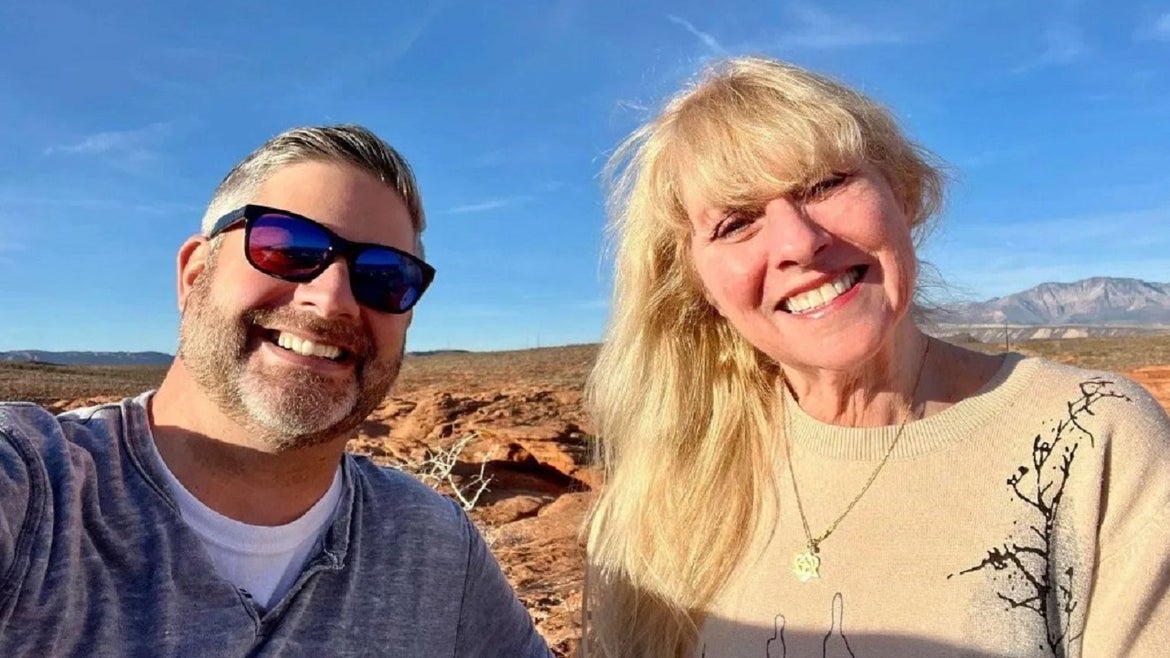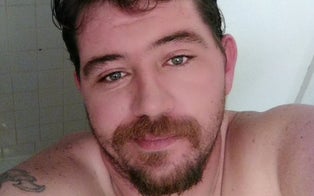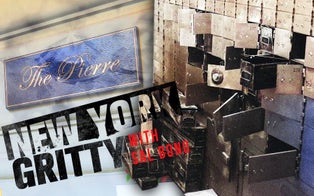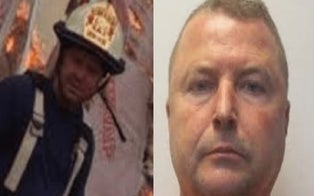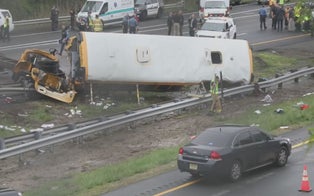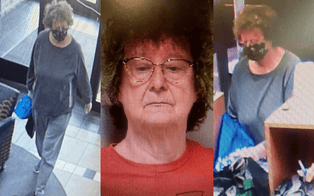Rickie Rubick died after becoming trapped in a freezer at The Meadows at Escalante in St. George, Utah, a nursing home she moved into only two months earlier. "She was curled up on the floor. Her body temperature was 79 degrees," her son says.
Remembering details brings his mind to a slamming halt. There is only so much the heart and head can abide.
Tony Rubick's 75-year-old mother, a fun-loving woman until dementia stole her soul, was lying on the floor of a Utah nursing home's walk-in freezer, curled in a ball, trapped by a locked door as frostbite and hypothermia set in.
She was supposed to be safe at The Meadows at Escalante in St. George, where her son had admitted her for life-saving care only 10 weeks earlier. She was supposed to be looked after around the clock.
Rickie Rubick died on Jan. 22, four days after staff found her behind the locked door of the kitchen's walk-in freezer.
When she arrived at an emergency room, her hands and feet were frozen, blistered and peeling. Her body temperature was only 79 degrees, her son, Tony, tells Inside Edition Digital.
He is besieged by despair, guilt and anger. But there is a memorial service to plan and a battle to wage.
"It's the hardest thing in the world to keep recounting this," he says. "But she'd want me to make sure that the others are safe. She'd want me to do this."
What Tony Rubick is doing is standing up and speaking out. He has a lawyer now and plans to sue the nursing home owners.
Days after his mother died, Rubick filed a complaint with the Utah Department of Health and Human Services against The Meadows at Escalante. Inspectors were dispatched. Numerous health citations were issued. The facility is now in danger of losing its license, the state's health department said.
"The provider is at risk of losing their license because compliance with licensing rules has not been maintained," the agency's investigation report read.
Among the violations was an "extreme" citation for failing to document injuries and accidents, and failing to have an administrator on the premises for sufficient periods of time, the report said.
"During the inspection, it was discovered that a resident accessed the kitchen through unlocked doors, became trapped in the facility's commercial kitchen freezer and later expired," the investigation determined, according to the report.
The facility has been fined more than $11,000 and has until June 30 to rectify all violations. During that period, "the provider receives additional monitoring inspections and is financially charged for each visit," according to the health department document.
Inside Edition Digital sent a detailed list of questions to Jeffery Smith, vice president of sales and marketing for Integral Senior Living LLC, the management company of The Meadows. Among the questions were queries about staffing, whether the facility has a nurse on duty and if the walk-in freezer is locked between meal times.
Smith declined to answer those questions, but sent Inside Edition Digital a statement via email.
"We are profoundly saddened by the tragic passing of one of our cherished residents, and our hearts go out to her family and loved ones. We are dedicated to ensuring the safety and comfort of our residents and team members during this difficult time," the statement reads.
"We have reviewed all procedures and processes designed to keep our residents safe. Out of respect for all affected, and in light of pending litigation, we will have no further comment," the statement concludes.
Tony Rubick said his mother's dementia was initially elusive. She was getting older. She forgot his birthday. Such things happen with age. Sometimes she said odd things, out of the blue.
Then the disease took off like a brakeless freight train.
His mother got lost driving her own stomping grounds. She called him from a closet in her home, sobbing and confused. "Eventually, I just had to go get her," he says. He drove from his Utah home to hers in California and brought her back.
She lived with her son and his wife for about six months, but her mental state continued to careen downhill. She needed to be watched every minute of every day. She wandered. She left the house without a word, letting her son's dogs escape through the open door.
So he moved her to an assisted living complex, where she could hopefully live somewhat independently, with professional help on the premises.
But reality intruded. Again, what was hoped to be a solution lasted just six months before things began falling apart.
"She would just leave. I would get calls from the police that she was at a nail shop, and she was combative," the son says. "This happened a couple of times."
The assisted living center recommended The Meadows, he says. There was round-the-clock care, a place where dementia patients could wander a shared hallway but weren't allowed outside the ward. Visitors had to be checked in and checked out, he says.
Rubick toured the site, and talked with staff and administrators. "It was a beautiful facility. It was quite large. I watched how they treated the patients," he says. "I had a short amount of time to move her, because it wasn't safe" for her at the assisted living complex.
Again, Rubick moved his mother. The Meadows aides seemed very nice and very helpful, he says. "The girls watched out for her," he says. "There were no red flags. Even with dementia, she was very friendly. At night, when I'd go over, she would be behind the counter, like she was working with the girls."
His mother also checked on other patients, to see how they were doing, like an honorary nurse.
"You trust these facilities," he says. "This is where you put your parents."
Tony stopped by often to see his mother, and he was involved with her care and those taking care of her, he says.
"I was engaged with her, and it still happened," he says. "I put her in there, and two and half months later this happens?"
He doesn't know how long his mother was in that freezer. He says he hasn't talked to staff there since he picked up his mother's belongings.
He is grateful for a few things, he says. He takes some small comfort from being able to share his mother's last days of life. She was in intensive care, tubes snaking around her, blisters bulging from her legs, and her feet and hands burned by frostbite and shedding dead skin.
She was on a ventilator for two days. Doctors scrambled to save her life. There would be amputations and physical therapy and a long recovery if she pulled through, Tony says he was told. At times, hope glimmered. But it, too, was elusive, like the disease consuming his mother's mind.
Her body eventually gave out.
"I had a day or two were she could talk to me," he says. "I asked if she remembered what happened. She didn't know. I asked if she remembered being cold, and she did. She didn't understaned why her hands were bandaged and she wanted to get up and walk," he says.
"It was heartbreaking, to be honest," he recalls.
"I was fortunate to be able to tell her I loved her, and she was able to say it back."
Now leading the dissonant parade of his trumpeting emotions is a cold-as-steel resolve for a reckoning. Someone must answer for what happened to his mother, he says.
"My absolute intent is this cannot happen to somebody again."

